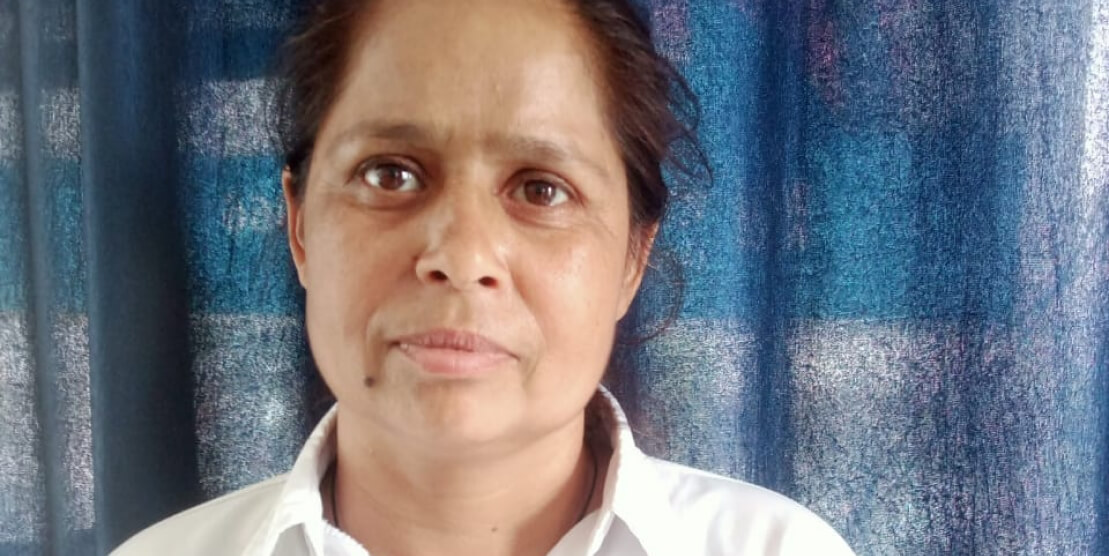Ranjana Amge's story is nothing short of extraordinary, capturing global attention as India's youngest mother. Born on November 28, 1993, in the small village of Nagpur, India, this remarkable individual has overcome immense challenges to become a symbol of resilience and determination. Her journey from a young girl to a mother at just 15 years old has fascinated millions worldwide.
Ranjana Amge's life is a testament to the complexities of societal norms, medical advancements, and personal strength. Her story not only highlights the unique circumstances surrounding her early motherhood but also sheds light on the broader issues of child marriage and reproductive health in India.
This article delves into the life of Ranjana Amge, exploring her journey, challenges, and the impact her story has had on society. By understanding her experiences, we can gain valuable insights into the socio-cultural dynamics that shape young lives in India.
Read also:Peru Bolivia Exploring The Rich Cultural Heritage And Natural Wonders
Table of Contents
- Biography of Ranjana Amge
- Early Life and Background
- Becoming India's Youngest Mother
- Challenges Faced by Ranjana Amge
- Impact on Society and Awareness
- Health Issues and Medical Concerns
- Support System and Community Role
- Future Plans and Aspirations
- Media Attention and Public Perception
- Lessons Learned from Ranjana's Journey
Biography of Ranjana Amge
Ranjana's Personal Information
Here is a detailed look at the personal details of Ranjana Amge, providing a clearer picture of her life and journey:
| Full Name | Ranjana Amge |
|---|---|
| Date of Birth | November 28, 1993 |
| Place of Birth | Nagpur, India |
| Profession | Mother, Activist |
| Marital Status | Married |
| Children | One son |
Early Life and Background
Ranjana Amge's early life was shaped by the socio-economic conditions of her village. Growing up in a humble family, she faced numerous challenges from a young age. Her parents, though supportive, struggled to provide the best opportunities for her education and development.
In a community where child marriage was prevalent, Ranjana's life took an unexpected turn at the age of 15. Despite the challenges, her family and community played a crucial role in shaping her journey as India's youngest mother.
Becoming India's Youngest Mother
Ranjana Amge made headlines when she became a mother at the age of 15, earning the title of India's youngest mother. Her pregnancy and subsequent motherhood brought significant attention to her story, both nationally and internationally.
Key Milestones
- Married at the age of 13
- Became pregnant at 14
- Gave birth to a healthy baby boy at 15
This section explores the circumstances surrounding her marriage and pregnancy, shedding light on the broader issues of child marriage in India.
Challenges Faced by Ranjana Amge
Ranjana Amge's journey was not without its challenges. From societal pressures to health concerns, she faced numerous obstacles that tested her resilience and strength.
Read also:Croatia A Hidden Gem In Europe Offering Breathtaking Landscapes And Rich History
Health Challenges
Pregnancy at such a young age posed significant health risks for Ranjana. Medical experts highlighted the potential complications associated with early motherhood, including gestational diabetes and preterm labor. Despite these challenges, Ranjana's determination and medical support ensured a successful delivery.
Impact on Society and Awareness
Ranjana Amge's story has had a profound impact on society, sparking discussions about child marriage and reproductive health. Her journey has become a catalyst for change, inspiring awareness campaigns and policy reforms aimed at protecting young girls from early marriages.
Statistical Insights
According to a report by UNICEF, approximately 27% of girls in India are married before the age of 18. Ranjana's story highlights the urgent need for interventions to address this issue. By raising awareness, communities can work towards eliminating child marriage and promoting the rights of young girls.
Health Issues and Medical Concerns
The health implications of early motherhood are significant, affecting both the mother and child. Ranjana Amge's case underscores the importance of accessible healthcare and education for young mothers.
Preventive Measures
- Regular prenatal check-ups
- Access to skilled healthcare professionals
- Education on reproductive health
These measures can help mitigate the risks associated with early motherhood, ensuring healthier outcomes for young mothers and their children.
Support System and Community Role
Ranjana Amge's journey was supported by a strong network of family, friends, and community members. Their role was instrumental in helping her navigate the challenges of early motherhood.
Community Initiatives
Community-based programs and support groups have played a vital role in empowering young mothers like Ranjana. By fostering a supportive environment, these initiatives help young mothers overcome societal stigma and achieve their goals.
Future Plans and Aspirations
Despite the challenges she faced, Ranjana Amge remains optimistic about her future. Her aspirations include providing the best possible life for her son and advocating for the rights of young girls.
Goals and Objectives
- Continue her education
- Work as an activist for child rights
- Promote awareness about reproductive health
Through her efforts, Ranjana hopes to inspire others to break free from societal constraints and pursue their dreams.
Media Attention and Public Perception
Ranjana Amge's story has garnered significant media attention, both in India and abroad. The media coverage has played a crucial role in shaping public perception and raising awareness about the issues surrounding early motherhood.
Positive Outcomes
The widespread coverage of Ranjana's story has led to increased awareness and support for young mothers. It has also prompted discussions about the need for policy changes to protect the rights of young girls.
Lessons Learned from Ranjana's Journey
Ranjana Amge's journey offers valuable lessons about resilience, determination, and the power of community support. Her story highlights the importance of addressing the root causes of child marriage and promoting the rights of young girls.
Key Takeaways
- Education is a powerful tool for empowerment
- Access to healthcare is essential for young mothers
- Community support can make a significant difference
By learning from Ranjana's experiences, we can work towards creating a more equitable and supportive society for all young individuals.
Conclusion
Ranjana Amge's journey as India's youngest mother is a remarkable story of resilience and determination. Her experiences highlight the challenges faced by young mothers and the importance of addressing the broader issues of child marriage and reproductive health.
We invite you to share your thoughts and insights in the comments section below. By engaging in meaningful discussions, we can continue to raise awareness and promote positive change. Additionally, we encourage you to explore other articles on our site for more insightful content.


